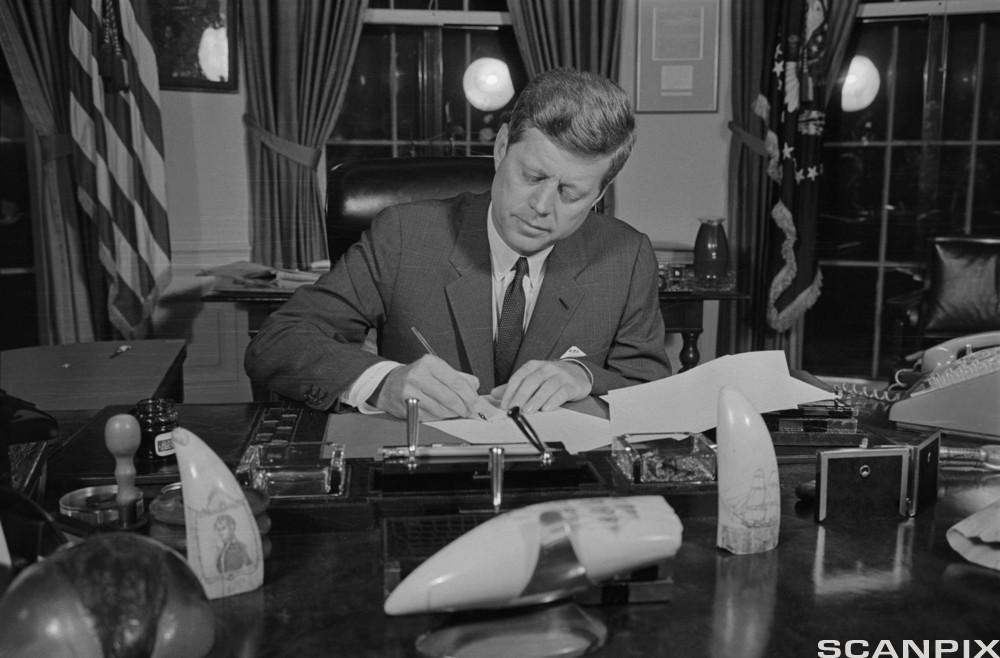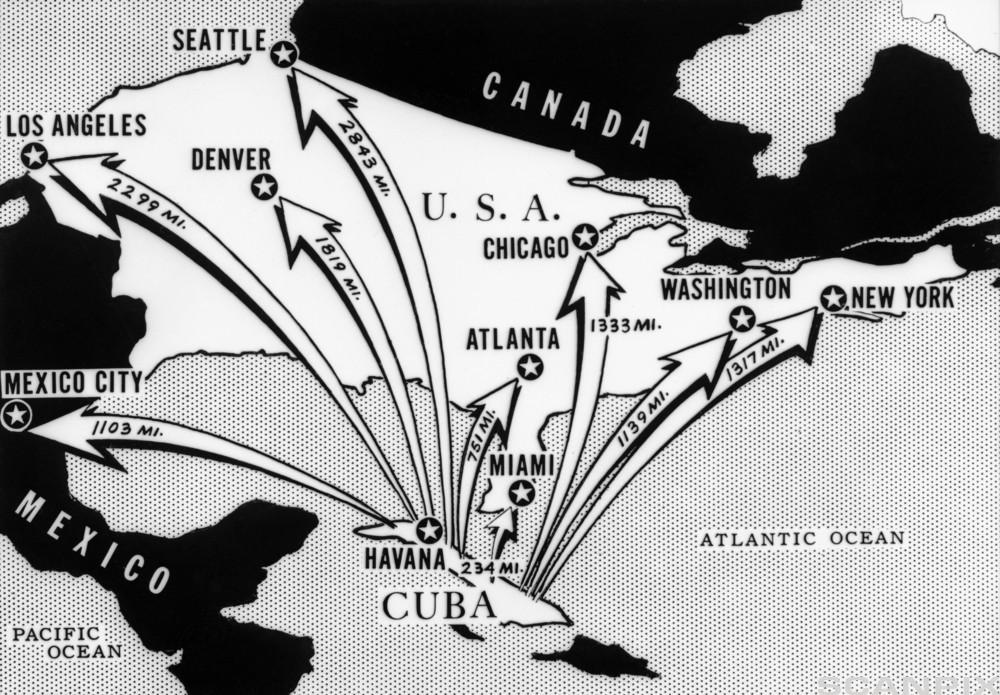John F. Kennedy

Individual work: Go through the words in the expandable box and find out what they mean.
In pairs: Pick a random word from the list and explain it to your partner. While explaining, you are not allowed to use the specific word and you are not allowed to speak Norwegian. Your partner should try to guess the word.
John F. Kennedy and his political career
JFK was of Irish descent and was born in Brookline, Massachusetts, in 1917. He was the second of nine children in a large, ambitious family. His parents, Joseph and Rose Kennedy, played a significant role in shaping his future.
Kennedy began his political career in 1946 when he was elected to the U.S. House of Representatives as a Democrat from Massachusetts. In 1952, he became a U.S. senator. By 1960, only seven years later, he ran for president and won the Democratic nomination. Millions of Americans watched his televised debates against the Republican candidate, Richard M. Nixon. Kennedy narrowly won the election, becoming the first Roman Catholic president in U.S. history.
The Cold War
JFK became president during the Cold War, a period of tension between the United States and the Soviet Union, a Communist superpower. He promised to stop the spread of Communism. To do this, he sent money, military advisers, and supplies to help fight Communists in Vietnam. In 1961, Kennedy supported a failed invasion by Cuban rebels who wanted to overthrow Cuba's Communist leader. This event, known as the Bay of Pigs invasion, was a major embarrassment for his administration.

One of the most serious Cold War crises occurred in 1962. The U.S. discovered that the Soviet Union was building nuclear missile bases in Cuba, just a short distance from Florida. Kennedy ordered U.S. warships to stop Soviet ships heading to Cuba. For 13 tense days, the world feared nuclear war. Finally, the Soviet Union agreed to remove its missiles. The following year, in 1963, the United States, the Soviet Union, and Great Britain signed a treaty to ban most nuclear weapons testing.
Domestic policy
At home, JFK worked on programs to help people in need. He wanted to lower unemployment, reduce taxes, provide healthcare for older people, and improve civil rights for African Americans.
JFK also played a key role in the space race during the Cold War. He set the ambitious goal of landing a man on the moon before 1970, inspiring the nation to support space exploration. His vision and commitment to NASA made space exploration a symbol of American strength and determination.
Vocabulary
Go back to the pre-reading activity. Can you still remember the meaning of the words? Work with a partner.
Discuss
Here is a list of quotes by John F. Kennedy. Go through the quotes and discuss:
• What did he mean by these statements?
• What kind of image do these quotes give of him as a person and as a president?
"If a free society cannot help the many who are poor, it cannot save the few who are rich."
(Inaugural Address, January 20, 1961)"Ask not what your country can do for you; ask what you can do for your country."
(Inaugural address on January 20, 1961)"We choose to go to the moon in this decade and do the other things, not because they are easy, but because they are hard."
(September 12, 1962)"A man may die, nations may rise and fall, but an idea lives on. Ideas have endurance without death."
(February 22, 1963)"The rights of every man are diminished when the rights of one man are threatened."
June 11, 1963"One person can make a difference, and everyone should try."
September 25, 1963
Group work
The text mentions several important historical events that took place in the early 1960s, during the presidency of JFK. In groups of 4-5, find out more about one of these events. You can choose how to present your findings: as a presentation, poster, film, or podcast.
The events you can choose from are:
The Cold War
The Vietnam War
The Bay of Pigs Invasion
The Cuban Missile Crisis
The Civil Rights Movement
The Space Race
The Assassination of John F. Kennedy